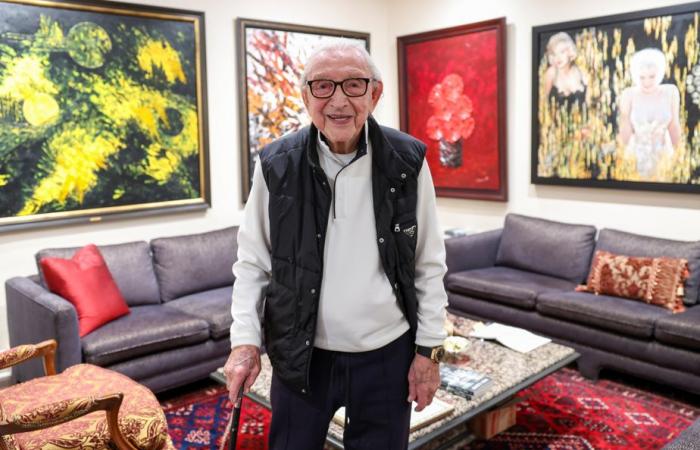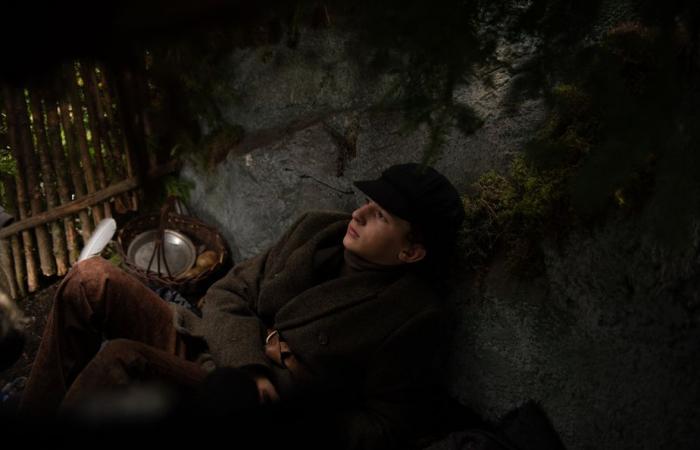Holocaust survivor, Montrealer Maxwell Smart never thought that his story would one day be the subject of a book and a film in which he is the hero.
Posted at 5:00 a.m.
“I’m not a hero,” says the 94-year-old artist humbly, who welcomes me into his home, in a house that looks like a museum.
Not a hero? Let me disagree, dear Maxwell.
Born into a Jewish family in Prague, Maxwell Smart, whose birth name was Oziac Fromm, was 9 years old when World War II broke out, sounding the end of a happy childhood. He was 11 years old when his family, which had moved to Buczacz, a small town in Ukraine that was part of Poland at the time, was hunted by the Nazis. After narrowly escaping deportation, he managed to survive by hiding in the forest for two years. With a young companion in misfortune he met by chance, he saved a baby there.
If Maxwell Smart survived, it was primarily thanks to his mother who ordered him to flee, he tells me.
I held on to just one thing: I had promised my mother that I would live. She told me: “You must live.” And I said, “I will live for you.”
Maxwell Smart
For more than seven decades, Maxwell Smart, who lost 62 family members in the Holocaust and found refuge in Montreal in 1948, never spoke about his story.
PHOTO GERRY KINGSLEY, PROVIDED BY PRODUCTION
Scene from the movie The Boy in the Woods by Rebecca Snow
For what ? Because it was too painful a story that he was trying to forget.
“When we’re in pain, we don’t want to remember how hungry we were, how cold we were, how freezing we were, how wet we were to the skin because we didn’t have a roof over our heads and lived outside like an animal. In reality, Rima, we don’t want to go back there. »
If he didn’t talk about it, it was also because he had the feeling that no one really wanted to listen to him, let alone believe him.
“I myself struggled to remember my life. So why would anyone believe me? Being a Holocaust survivor was not an honor when I arrived in Canada. »
It was his wife, Tina Russo, who encouraged him to tell his incredible story.
She said to me: “You went through all this and you don’t want to tell people!?” I realized she was right. I opened up and wrote a book. It took me ten years to write it with his help. It was very difficult.
Maxwell Smart
Very difficult, but absolutely necessary, he says to himself today, when fewer and fewer Holocaust survivors are still alive and there is a rise in anti-Semitism.
Bestseller in English Canada, The Boy in the Woods (Harper Collins), which has just been adapted for the cinema by director Rebecca Snow, tells both the darkest side of humanity – hatred, racism, anti-Semitism and their terrible consequences in the lives of children – and its brightest side, without which Maxwell Smart could not have survived: the courage of those who, risking their lives, reached out to him.
“I would like people to remember the horror of the Second World War. The inhumanity of men, especially towards children. I would like to raise awareness among children in particular. Because children are our future. They are our future leaders, doctors, lawyers, writers… They will be in power one day. And I want my story to never be forgotten. »







